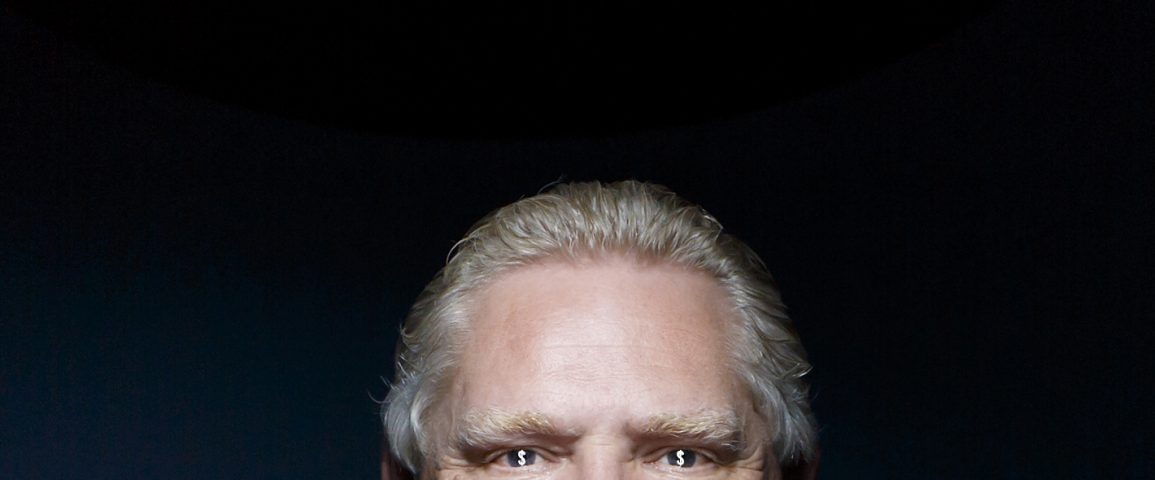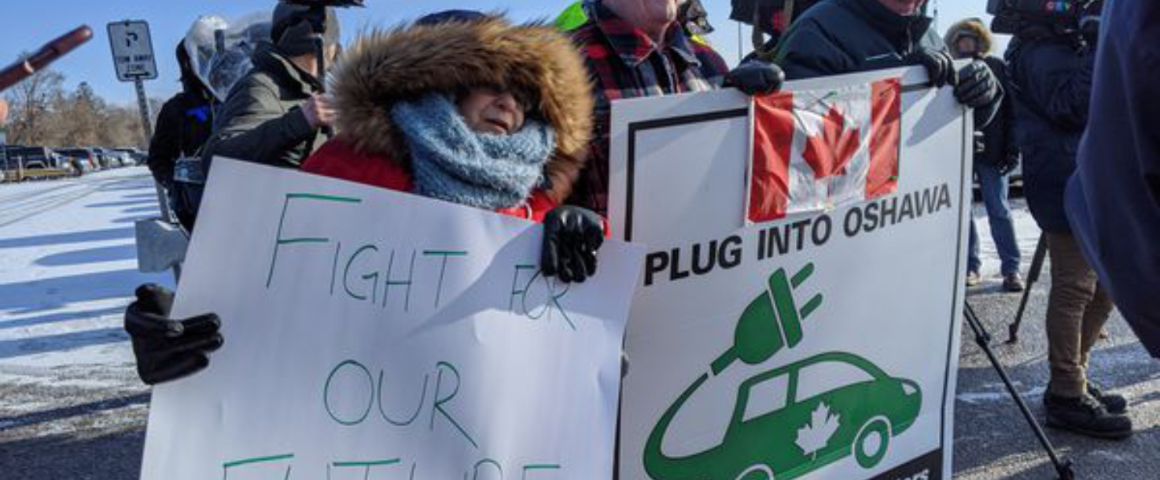On June 14, the Ford government recalled the Ontario legislature in order to pass an anti-democratic electoral reform package that had been struck down by the courts only days before. In order to override the court decision, the Conservatives invoked the notwithstanding clause in the constitution.
The same day, Ontario Federation of Labour President Patty Coates said the government was trying to “rig the next election in their favour.” “Doug Ford’s unprecedented use of the nuclear option of the notwithstanding clause is a threat to Ontario’s democracy,” said Coates in a press release. “Ford’s changes to Ontario’s Elections Finances Act attempt to silence his critics and the courts, rightfully, determined his changes to be unconstitutional. Today, Ford’s government charged ahead with those changes anyway.”
The OFL held a “Virtual Rally to Defend Our Democracy” before the vote at Queen’s Park. One of the speakers was Natalie Mehra, Executive Director of the Ontario Health Coalition, who pointed out that the changes to election law severely limited communications from groups like the one she leads. The Health Coalition and others have been fighting for improvements to long-term care and for increased access to vaccines in disproportionately impacted communities such as the majority racialized essential workers in Peel and the Kashechewan First Nation on James Bay. Mehra pointed out that, in this sense, the electoral changes are “fundamentally about inequity and about prioritizing the most crass form of politics over human lives which we’ve seen throughout the pandemic.”
In early March, the Communist Party of Canada (Ontario) released a detailed statement saying that the changes “will only serve to increase the political power of corporations and the wealthiest capitalists in the province.” Pointing to Ford’s move to double annual donation limits and place further limits on “third-party” spending, the Communist Party said that “Doug Ford hopes the changes will get his government re-elected to another term in order to continue to put the burden of a deep economic crisis on the backs of Ontario’s working class.”
With courts striking down key pieces of Bill 254, The Protecting Ontario Elections Act a few days before, Ford recalled the legislature and reintroduced it as Bill 307, The Protecting Elections and Defending Democracy Act which employed the notwithstanding clause. This is an unprecedented use of the clause in Ontario’s history although the Conservatives did intend to use it to override a court decision against its 2018 move to cut Toronto City Council in half and replace some elected heads of councils with appointees. In the end, Ford was able to ram through those changes, weakening local democracy and strengthening the power of developers and corporations, when the Ontario Court of Appeal sided with the government.
In 2018, the Communist Party noted that their willingness to use the notwithstanding clause demonstrated that the “Ford Tories intend to govern using brute force as needed.” The Party also said that the episode was “an indication that the Constitution needs to be changed to eliminate its undemocratic and authoritarian content.”
Ford’s ruthless use of the notwithstanding clause has reopened a broader debate about the current Constitution. The notwithstanding clause was added at the tail end of negotiations in 1982 which removed Quebec’s power to veto decisions made in English-speaking Canada that would negatively affect the people of Quebec. The Communist Party pointed out then that the final text of the Constitution excluded the Premier of Quebec and it reduced “Quebec’s status in Canada to being one of ten provinces” while “denying its existence as a distinct nation within Canada with the right to self-determination up to and including secession.” The Communist Party fights for a new constitution based on an equal and voluntary partnership of all nations in Canada: Inuit, First Nations, Métis, Quebec, Acadians and English-speaking Canada.
The Canadian Civil Liberties Association released a short and strong statement on Ford’s “extraordinary” use of the clause, saying that “the notwithstanding clause was designed to be a democratic safety valve, not a brazen power grab to tilt election rules in a government’s favour.”
The labour movement fought to have the courts stop Bill 254. This is because the main target of the legislation was labour’s participation in elections. Currently, the Working Families Coalition and Unifor are major advertisers leading up to and during elections. However, the last election had pro-Conservative third parties such as Ontario Proud and the real estate and non-union construction companies outspending labour-backed third parties. The fact that Ford is curtailing third parties in general shows that things have changed, and the government is growing desperate to silence labour in advance of the election scheduled for spring 2022. Polls in early June showed a 10 percent drop in the Tories’ popularity since February.
While the labour movement’s court challenge resulted in a successful decision, relying solely on that strategy has been shown as a dead end. Labour leadership has also sometimes shied away from defending unions’ right to participate in elections without stifling regulation. Changes to election law implemented by the Wynne government in 2016 saw the outlawing of union and corporate donations to political parties and both being classified as the same kind of third party in elections under new regulations. There was no clear opposition at that time from the labour movement against the false equivalency of corporations and trade unions.
Even in its June 14 press release, the OFL says that it is “not opposed to limits on election spending” and that it has “pointed to jurisdictions across Canada that have successfully introduced third-party limits.” It appears that the OFL and the Ford government agree on some level that unions should be regulated as third parties. Ford has tried to sell these changes as a “defence of democracy” and that they are fighting against “American-style super PAC politics.” It is clear, though, that his target is labour.
However, the participation of unions and corporations in elections are fundamentally different. The Communist Party of Canada (Ontario) wrote that unions are “democratic working-class organizations” and that “‘third parties’ are often described as ‘special interest groups,’ but the working class makes up the vast majority of the population in Ontario and the interests of the organized working class are the interests of the majority. Trade unions should have every right to organize, fundraise, spend and donate during an election. Corporations on the other hand are entirely top-down organizations with accountability only to a small number of shareholders solely interested in profit. Corporations are the real threat to democracy.”
While it appears the battle over these election changes may be over for now, the broader fight to defeat the Ford government and force any government that comes after to enact policies that put people before profit is just beginning. That fight will require more than third-party advertising and will need to include mass escalating mobilization led by the labour movement.
[hr gap=”10″]
Get People’s Voice delivered to your door or inbox!
If you found this article useful, please consider subscribing to People’s Voice.
We are 100% reader-supported, with no corporate or government funding.




